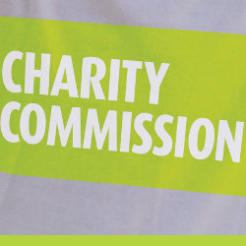The government will look “very carefully” at whether there is a need for more funding for the Charity Commission, a committee of the House of Lords was told yesterday.
Lord Wallace of Saltaire, a Liberal Democrat peer and a government whip in the Lords, told peers that “if the new Charity Commission board can make a strong and positive case for additional resources, the government will look at that very carefully”.
Wallace was speaking during a debate on the effectiveness of the Charity Commission in the House of Lords grand committee, a forum for peers to raise issues with ministers.
Wallace said that resources at the Commission were now “extremely hard stretched”, and that the Commission may have to be strengthened if the sector was to have the “clear regulation” it needed.
Possibility of charging large charities
He said the government was looking at the question of “how it provides the resources needed for regulation”. He said charging for larger charities might “become part of this package” but that this would need “further debate”.
“Charities do not respond with much enthusiasm to this suggestion,” he said.
Wallace said there was increasing professionalisation among charities, that larger charities “had become a great deal more ruthless”, that “a small number of charities test the limits or are involved in actual fraud”.
He said these factors meant the Commission had had to become “a less trustful regulator”.
He said charities needed to “be aware of the dangers of being over-professional and over-corporate” and that “some of our larger charities have edged a little far in that direction”.
Wallace was responding to a number of peers who had spoken during the debate about the need to provide more support for the Commission, following damning recent reports from the National Audit Office and the Public Accounts Committee.
Margaret Hodge, chair of the PAC, said the Commission was “not fit for purpose” and suggested handing its responsibilities to HM Revenue & Customs.
Lord Phillips of Sudbury, a Liberal Democrat peer and charity lawyer, said the Commission’s budget had fallen by 40 per cent, but “half the NAO’s recommendations require it to commit more resources”.
Baroness Barker, a Liberal Democrat peer and a charity sector consultant, who had secured the debate, said the PAC had been highly critical of the Commission but had made “unclear and unhelpful recommendations” about how it could improve.
She said the Commission now managed a sector with £61bn of turnover but had a budget of just over £20m to do so.
She said that it was clear that fault for the Commission’s problems did not lie “with the current officers or their immediate predecessors”.
But she also criticised some aspects of Commission behaviour.
“The best organisations have three characteristics,” she said. “They knows what they are trying to achieve, they have the information they need to fulfil their vision, and they have excellent relationships with other organisations.”
In contrast, she said, the Commission did not know whether it was there to benefit charities or the public, and its relationship with other regulators had been “distant and aloof”.
She called for particular support from the government for the Commission’s digital strategy. She said every charity should be required to have a website which displayed its purposes, its governing documents, and its latest accounts.









